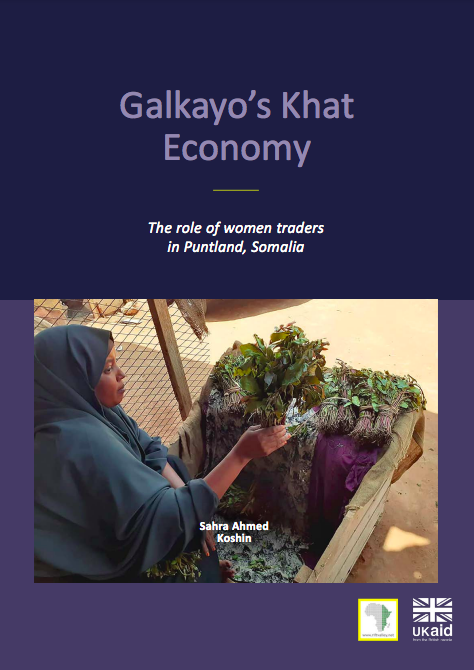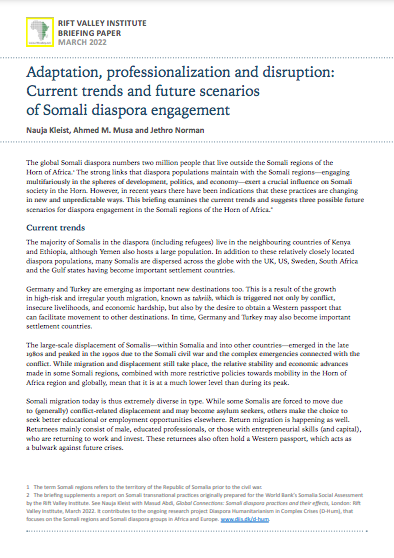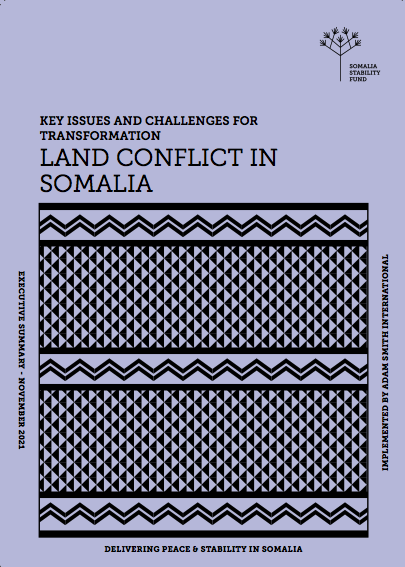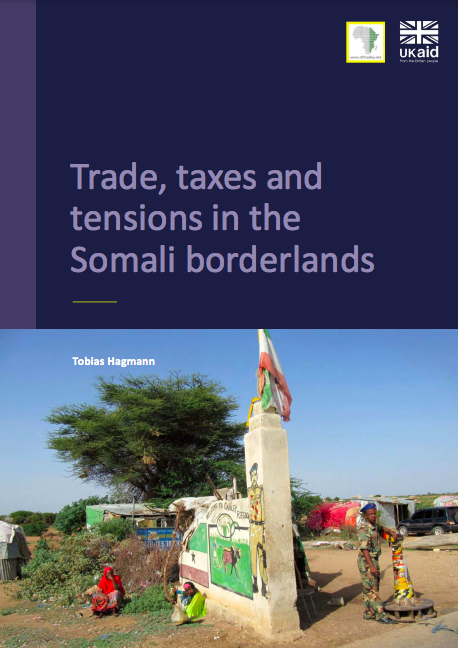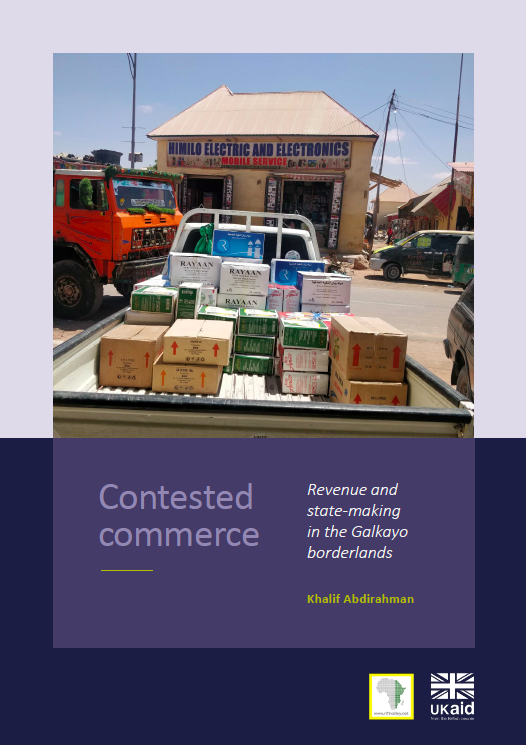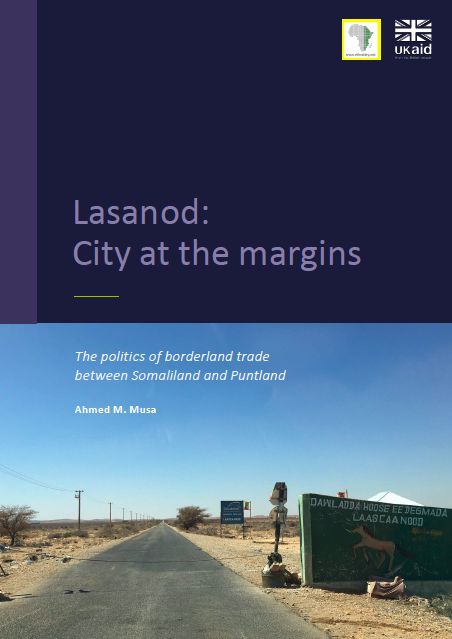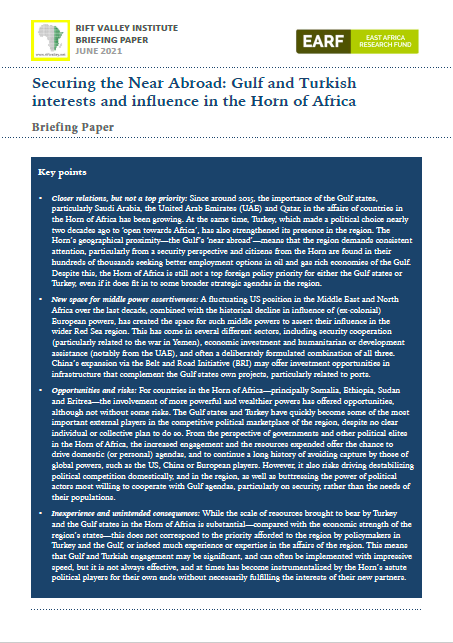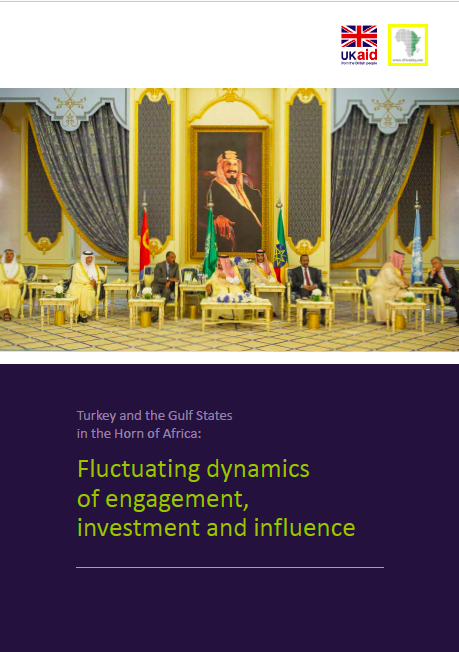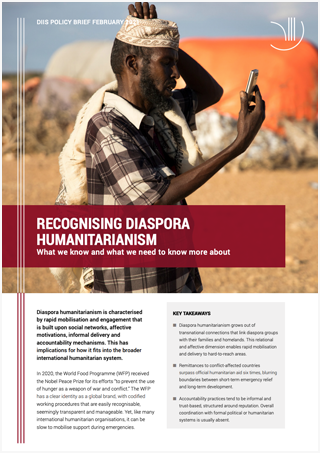Following Somalia’s economic recovery from the civil conflicts of the 1990s and 2000s, the khat trade has become a prominent source of tax revenue, particularly in Galkayo, an important regional hub for commerce between southern/central Somalia and the Port…
RVI publishes books, research reports, research papers, briefings and meeting reports in a range of formats. Publications cover policy, research, arts, culture and local knowledge in the countries of eastern and central Africa. Research publications—books, reports and papers—are peer-reviewed. Some RVI publications are also available in French and/or Arabic.
The RVI is a signatory of the Budapest Open Access Initiative (2001); all publications are free for download in PDF format under Creative Commons licences. The views expressed in books and reports published by the RVI are those of the authors, not the Institute.
SEARCH
PUBLICATION TYPE
LANGUAGE
REGION
COUNTRY
The global Somali diaspora numbers two million people that live outside the Somali regions of the Horn of Africa. The strong links that diaspora populations maintain with the Somali regions—engaging multifariously in the spheres of development, politics, and economy—exert a…
With an estimated two million people of Somali descent living outside Somalia—the ‘Somali diaspora’—an understanding of migration and transnational practices is crucial for grasping Somali society. Mobility and mobile livelihoods have been important aspects of Somali life for centuries….
This briefing paper–part of a larger report–was commissioned by Somalia Stability Fund (SSF) with the aim of conducting a comprehensive literature review on land conflict in Somalia. The report was motivated by two factors: first is the desire to…
Cross-border trade is crucial for ongoing state building in the Somali inhabited Horn of Africa. This is significantly enabled by revenue collection at border crossings, which forms a crucial part of states’ finances in this region. Cross-border trade is…
Situated between Somalia’s Federal Member States of Puntland and Galmudug, the city of Galkayo forms an administrative and social boundary within the broader Bosaso trade corridor, which encompasses Puntland, Galmudug and Hirshabelle. Located at the edge of Puntland but…
Lasanod is located on the border between the Republic of Somaliland and Somalia’s federal state of Puntland. Now under the administrative control of Somaliland, the city is contested— sometimes violently— between the two polities, which are both products of…
Since around 2015, the importance of the Gulf states, particularly Saudi Arabia, the United Arab Emirates (UAE) and Qatar, in the affairs of countries in the Horn of Africa has been growing. At the same time, Turkey, which made…
Since around 2015, the importance of the Gulf states, particularly Saudi Arabia, the United Arab Emirates (UAE) and Qatar, in the affairs of countries in the Horn of Africa has been growing. At the same time, Turkey, which…
This briefing is an output of the Diaspora Humanitarianism in Complex Crises (D-Hum) project, a partnership between the Danish Institute for International Studies, Institute for Development Studies, University of Nairobi, Rako Research and Communication Centre, and the Rift Valley Institute. Key…
Recent Publications

Political Economy of Cash and Markets in Sudan
February 27, 2026
The research provides a snapshot of the war in Sudan in the period from February to April 2025. However, the war is dynamic, with political alliances and territorial control changing. The April 2023 conflict between the Sudan Armed Forces (SAF)

Rethinking Ethiopia II: Youth and politics
February 26, 2026
Seminar report Rethinking Ethiopia, a collaborative essay competition initiative between Addis Ababa University’s Institute for Peace and Security Studies (IPSS) and the Rift Valley Institute’s (RVI) Peace Research Facility (PRF), offers a platform for Ethiopian youth to express their ideas

2025 Year in Review
February 16, 2026
The 2025 Year in Review provides an overview of the Rift Valley Institute’s work over the past year across eastern and central Africa. The report highlights RVI’s research and publication outputs, education and training activities, and public forums and convenings,

